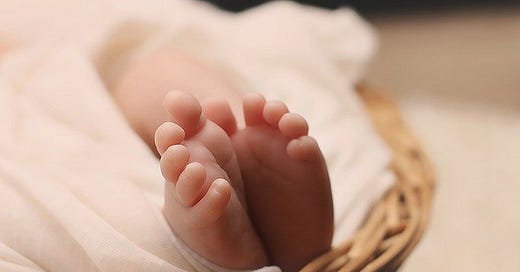First names come in and out of fashion. Denise and I have names that were fairly common in the 1950s. According to one site I consulted, our parents would likely name us Olivia or Emma today. And my brother Steve would more likely be named Liam. Trust me, my brother is NOT a Liam.
The Book of Names
Upon arriving in Portugal, we quickly discovered that many people had the same first name. It seemed that nearly every woman we met was named Ana…that’s with one “n” not two. (I got a lot of messages from Google Mail that my first attempt to email an Anna with two n’s was not found.) Our insurance agent is named Ana, as is our architect, my doctor’s assistant…the list goes on and on. Among men, we met a bunch of João’s and Rui’s. The latter caused us particular difficulty at first because “R” is pronounced “rh” with a heavy emphasis on the “h”.
At first, we assumed that this was no different than so many Americans being named John or Susan. Perhaps the book of baby names that expectant parents purchased at the local book store didn’t change much from year to year. But our further investigation found that it wasn’t as simple as that…there was in fact an official book of Portuguese names. In fact, there is a law:
Apparently the reason for the strict naming law is to abide by tradition while protecting the child from abuse. The Portuguese law considers that naming a child isn’t a right but rather a responsibility and children are entitled to the protection of the law even when considering name giving. — Portuguese American Journal
Banned at Birth
The list not only includes approved names but banned names as well….though the list has changed over time. In general, the approved names follow the following guidelines:
They are Portuguese names with Portuguese spelling (Tomás rather than Thomas) thus upholding the Portuguese tradition.
It is not a nickname…instead, when speaking to that child informally you might put “inh” or “it” before the final vowel (Teresa becomes Teresinha, meaning little Teresa).
It is not a surname…no Johnson Johnson’s or more accurately Ramirez Ramirez.
And speaking of surnames, it is not uncommon to have more than one. In fact, it is more common to include both the mother and father’s surnames, which sometimes means including grandparents’ names as well. These are not hyphenated.
For example, if José Santos Almeida and Maria Abreu Melo had a daughter, her name could simply be Joana Melo Almeida (given name + mother's last name + father's last name). However, they could give her two given names, for example Joana Gabriela, and combine their surnames in various ways, such has Joana Gabriela Melo Almeida, Joana Gabriela Abreu Melo Almeida (two surnames from the mother, one from the father), Joana Gabriela Abreu Santos Almeida (one name from the mother, two from the father), or even Joana Gabriela Abreu Melo Santos Almeida (two names from each parent). — Wikipedia
In this case, the person would simply be referred to by their last surname, becoming Joana Almeida. Thank goodness…
Is Portugal Unique?
Of course, there is a government website where you can register a child’s birth. (I also found there was a site where one can change their first name and gender, free of charge.) And keep in mind, while this “law” may grate against Americans’ individualist mindset, it is not unique. While this custom has been relaxed in recent years there are other countries that have guidelines for naming a child.
Next Week: let them eat lunch and a salty tale.






Thanks Nancy - interesting post. 'Learn something new every day' . Hope you two are well -enjoy the journey. Take care.
We've found this naming convention both fun and confusing...in our early years, when we met someone with the same last name as another friend, we would ask if they were related; at some point, we realized there is a narrow range of last names and all of our friends were Andre, Duarte, João or Ana, Maria, Sonia...so we need to use first and last names to differentiate and even then...well, you get the drift!